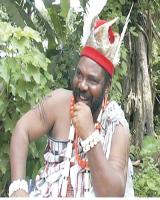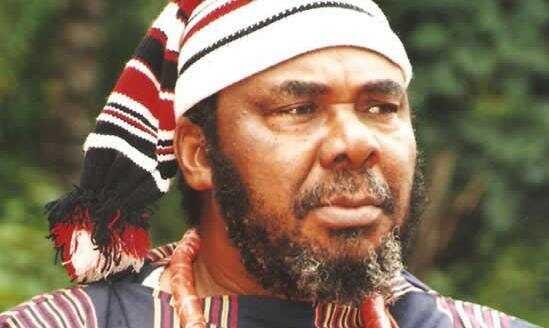
Today, I deliberately want to distance myself from the worrisome political and economic situation in Nigeria engendered mostly by many Harams (apologies to Boko Haram sect) including legitimized official corruption, stress in the banking halls and the making of a one party state through carpet crossing.
All these are happening in a country where the electoral commission headed by Prof. Maurice Iwu, has registered 52 political parties and still warming up for more. I would definitely return to some of these themes in subsequent articles in this column.
I have chosen the above topic to enable me offer counter textual analysis to numerous criticisms levelled against Nigerian films (home video) and what has now transformed to Nollywood and new Nigerian popular music (pop) in Nigerian media of recent. This is my contribution to the debate on Nigerian film industry which has globally become famous as Nollywood (an adaptation from American Hollywood and Indian Bollywood) and the new genre of Nigeria’s popular music culture otherwise known as hip-hop.
Historically, the first home video, ‘Living in Bondage’ that gave birth to Nollywood was actually the brain child of Okechukwu Ogunjiofor (Paulo) an indigene of Amaebu, in Orsu Local Government Area of Imo State. He shot the film for Kenneth Nnebue, an indigene of Mgbidi in Imo State and owner of Ijesha, Lagos-based NEK Video Links. That was in 1992.
I remember I did a critical review of that film done in Igbo Language for The Guardian Newspapers, Lagos. Following the success of ‘Living in Bondage’ which featured star actors as Kenneth Okonkwo (Andy), Kanayo O. Kanayo, Okechukwu Ogunjiofor (Paulo), Merit and many others and which captured our imaginations through the successful portrayal of most aspects of our contemporary experiences, others joined the fray.
Before the emergence of ‘Living in Bondage’, there were Yoruba films as well as Igbo films under the ‘Ogburu Anyanwu’ series, championed in Onitsha by Mike Orihedimma, from Ihitenansa, Orsu LGA, Imo State, but ‘Living in Bondage’ redefined the making of home video in Nigeria and gave birth to a multi-million naira industry known as Nollywood.
The making of ‘Living in Bondage’ was an experiment. It was propelled by the can do spirit of the average Igbo man and his penchant to take business risk. The success story of Living in Bondage encourage Ogunjiofor to come out with other chart busters like ‘Nneka, the Pretty Serpent’ and the ‘Circle of Doom’ before his conversion to wave making Pentecostalism made him tilt towards Christian movies. Since becoming a pastor of the word, Ogunjiofor has concentrated on film production, mentoring new acts than acting which brought him fame and wealth. I have had occasions to ask him to come back to what he pioneered, which others are reaping bountifully. Maybe, Paulo will one day bounce back to acting. Who says that acting secular film is immoral and sinful?
Before ‘Living in Bondage’, which is a satire on people’s quest for fast wealth money through occult practices and other rituals, Nnebue was engaged in making Yoruba films which were in vogue then. But the outstanding success of ‘Living in Bondage’ changed the entire equation and future direction of Nigerian home video culture.
Since the success of ‘Living in Bondage,’ other Igbo film makers located in Upper Iweka, Onitsha in Anambra State, Aba in Abia State, Idumota and Alaba International market in Lagos State have cloned the pattern of ‘Living in Bondage.’ Such is to be expected because any product that is successful is bound to be copied. Some may be good copies while some may not.
Some have really gone ahead to improve on what ‘Living in Bondage’did.They include ‘Igodo’, ‘Glamour Girls’, ‘Deadly Passion’, ‘Atinga’, ‘Billioneers’ Club’, ‘Desperate Housewife’ and ‘Deadly Affair.’
The acting space has been widened with new young faces. The story line is no longer the same. Love, vengeance, hatred, tribalism, marriage, corruption, scam are some of the themes being explored now other than the money-making rituals portrayed in ‘Living in Bondage.’
More sophistication, picture quality and standardization have come in. But alas, instead of the Igbo language films that created this market, all the films are now done in English with a little injection of few phrases of Igbo, other indigenous languages and pidgin.
In spite of its shortcomings, Nollywood films have now become the rave of the moment in DSTV’s Africa Magic channel and other Cable televisions. Some of the criteria for beaming these films on Africa Magic channel include quality, sound, storyline and good acting.
From the modest start of ‘Living in Bondage,’ I have kept in touch with the developments in the Nigerian movie industry. I am an ardent consumer of Nigerian films. My favourite actors/actresses are legion. Permit me here to mention just a few of them that I can remember either their real name or acting name. Not in order of preference, they include the midgets that caused commotion at the Corporate Headquarters of the Sun Newspapers in Lagos recently while staffers were jostling to have a hand shake with them, Aki and Pawpaw, Sam Loco Efe, Zack Orji, Jide Kosoko, Dolly Unnachukwu, Patience Ozokwor, Nkem Owoh, Kenneth Okonkwo, Bob Manuel Udokwu, Richard Mofe-Damijo, Paulo, Omotola Jalade-Ekeinde, Genevieve Nnaji, Rita Dominic, Ramson Noah, KOK, Liz Benson, Stella Damasus, Okey Bakassi, Victor Osuagwu and Dauda (not his real name).
This list, as I have earlier said, is by no means exhaustive. There are many other actors that I like but could not remember their actual or stage names. I must confess that I like also those that perform minor roles as house boys, gate men and cleaners. There are also other actors I like not because of Nollywood but because of other acting prowess they have displayed in other arena. These include Gringory and Clarus of the rested Masquerade fame, Chief Zebrudaya, Ovularia, the late Jegede, Ramota. So also is Pete Edochie, who acted Okonkwo in Things Fall Apart, Justus Esiri and some other actors in the rested Village Headmaster sitcom.
The criticisms leveled against Nollywood are many. They include poor script writing, directing, sound quality and repetition of themes and templates in such a way that after watching a few lines of most Nigerian movies, the rest can be predicted because of the usual pattern of the story line. Other sins of the practitioners of the home video trade include overt use of rituals, superstitions, sex and violence. They have also been accused of undue proliferation of films, to the extent that buyers have lost count of the number and their titles. Some have even queried the propriety of the name, Nollywood.
These criticisms notwithstanding, I affirm that there is something in Nollywood hence I include in the title of this article ‘Nolly something.’ Indeed, Nollywood has so many things to cheer. The story of Nollywood is not one of disappointments and despair; it is one of hope and optimism despite some obvious lapses.



















